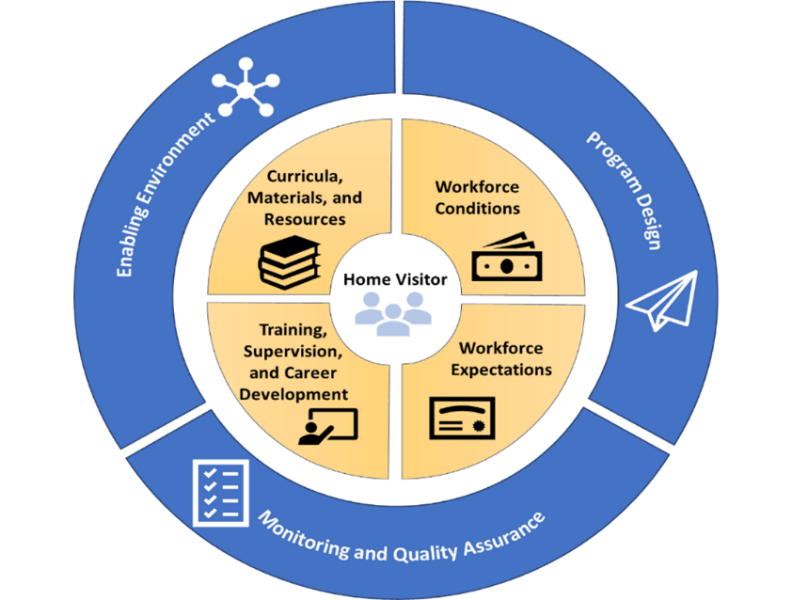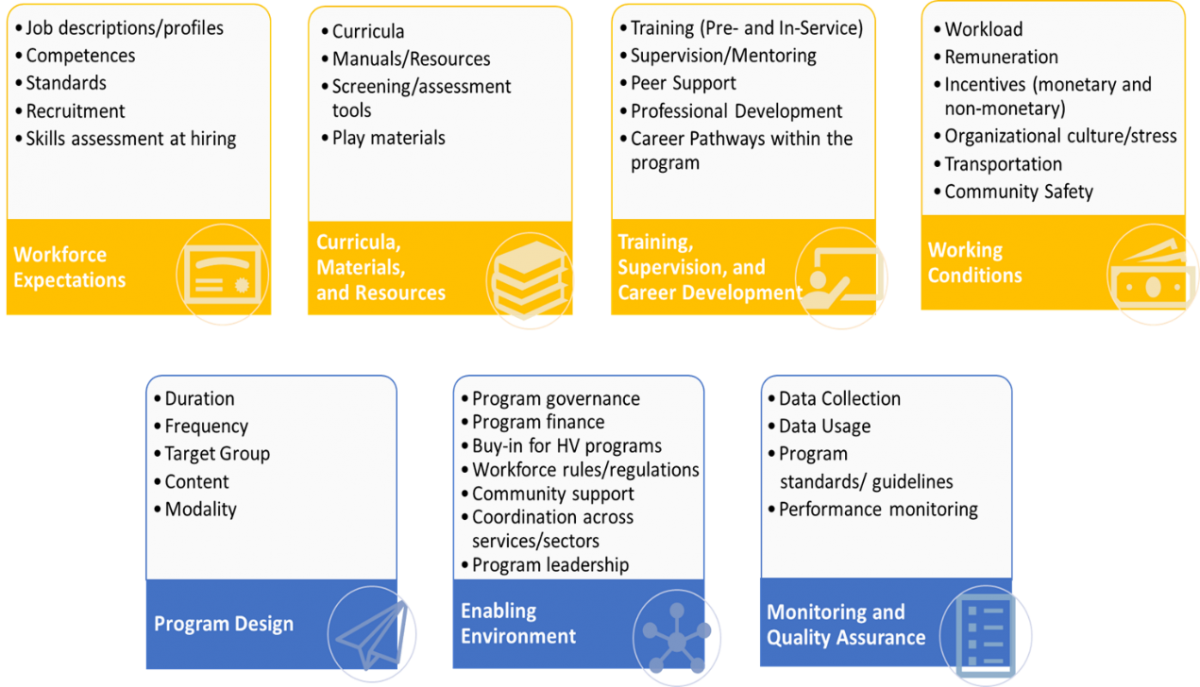Diversity and identity - the early childhood workforce
Date: July 12, 2016
Time: 00:00
Date: July 13, 2016
Time: 00:00
This date of these webinars has passed. Please find the recordings below.
This webinar provides a platform for discussing the identity of the early childhood workforce and how this impacts on early childhood policies and practices and the recognition of the early childhood profession.
- How can public policy reflect the science and common understanding of early childhood development needs across the diverse sectors working with young children and their families?
- Is there a role for shared fundamental standards and training to promote coherence in the delivery of early childhood services?
- How can pre-service and in-service training help bridge the gap created by a diverse but often fragmented ECD workforce?
- What links can be established across different sectors to foster a cohesive approach to working with young children and their families?
- Is the workplace environment supportive of different types of ECD workers?
- How can public policy be more supportive in strengthening the identity of the ECD workforce and build upon the richness of its diversity?
The event brings together key actors from across the world who are working in the field of early childhood development (ECD), with a focus on the ECD workforce.
Meet the Panelists for July 12th :
Moderator:
- Anaïs Loizillon, independent consultant specializing in global education policy [Bio]
Speaker:
- Dr. Mihaela Ionescu, Program Director ISSA- International Step by Step Association [Bio]
- Lynette Okengo, Executive Director of the African Early Childhood Network [Bio]
- Lydia Foong, Head of the Faculty of Education, SEGi University, Malaysia [Bio]
- Hirokazu Yoshikawa, Courtney Sale Ross Professor of Globalization and Education at New York University (NYU) Steinhardt, University Professor and Co-Director of the Global TIES for Children center [Bio]
- Professor Dr Mogana Dhamotharan, Professor of Education, SEGi University, Kota Damansara, Malaysia [Bio]
Meet the Panelists for July 13th :
Moderator:
- Anaïs Loizillon, independent consultant specializing in global education policy [Bio]
Speaker:
- Kimberly Josephson, Program Associate at Results for Development Institute (R4D) [Bio]
- Sian Williams, independent consultant in policy and programming for children in Jamaica and across Caribbean Community countries [Bio]
- Dr. Eunice Lumsden, Head of Early Years at The University of Northampton [Bio]
- Antonio Rizzoli Córdoba MD, PhD, Founder and Head of the Neurodevelopmental Research Unit at the Hospital Infantil de México Federico Gómez (HIMFG) [Bio]

 The tool aims to assist policymakers at the national or sub-national levels in:
The tool aims to assist policymakers at the national or sub-national levels in: